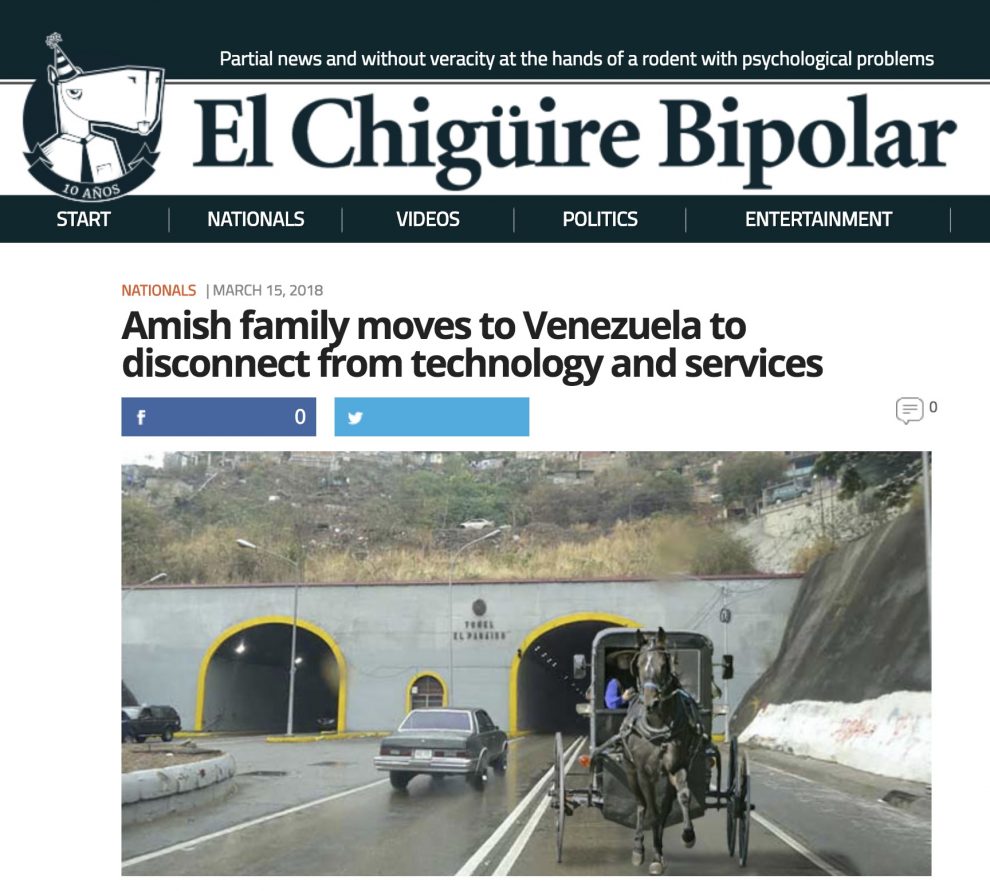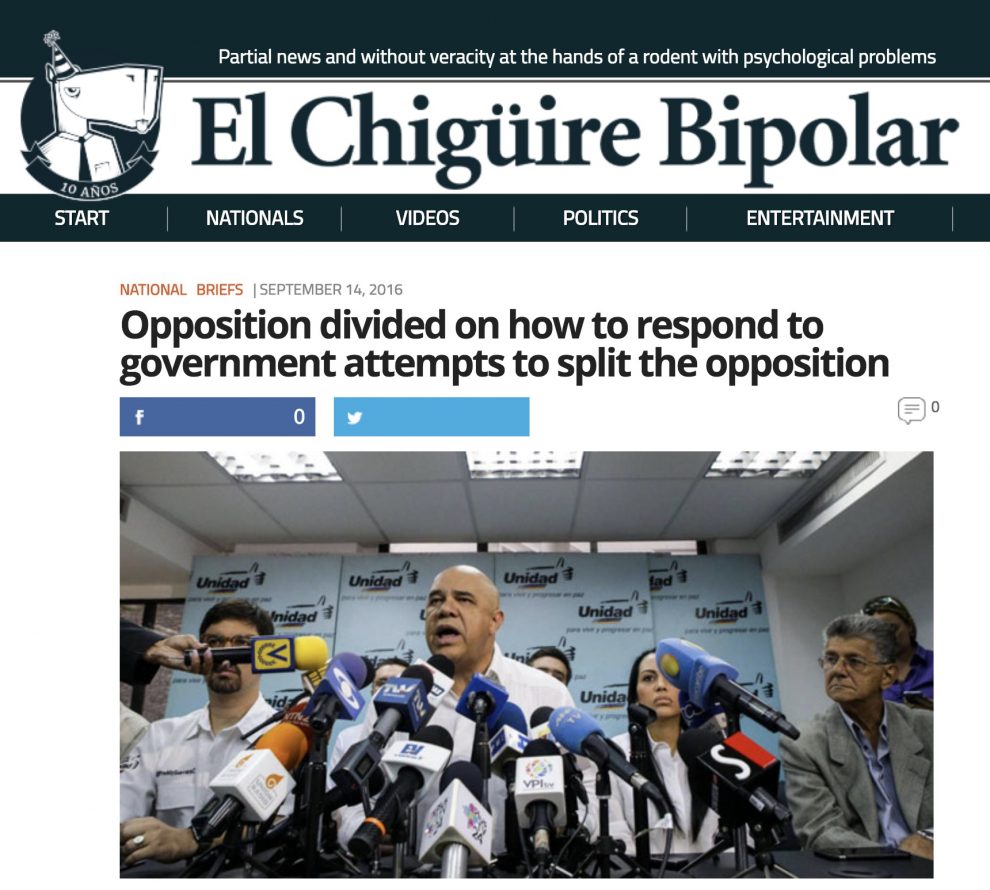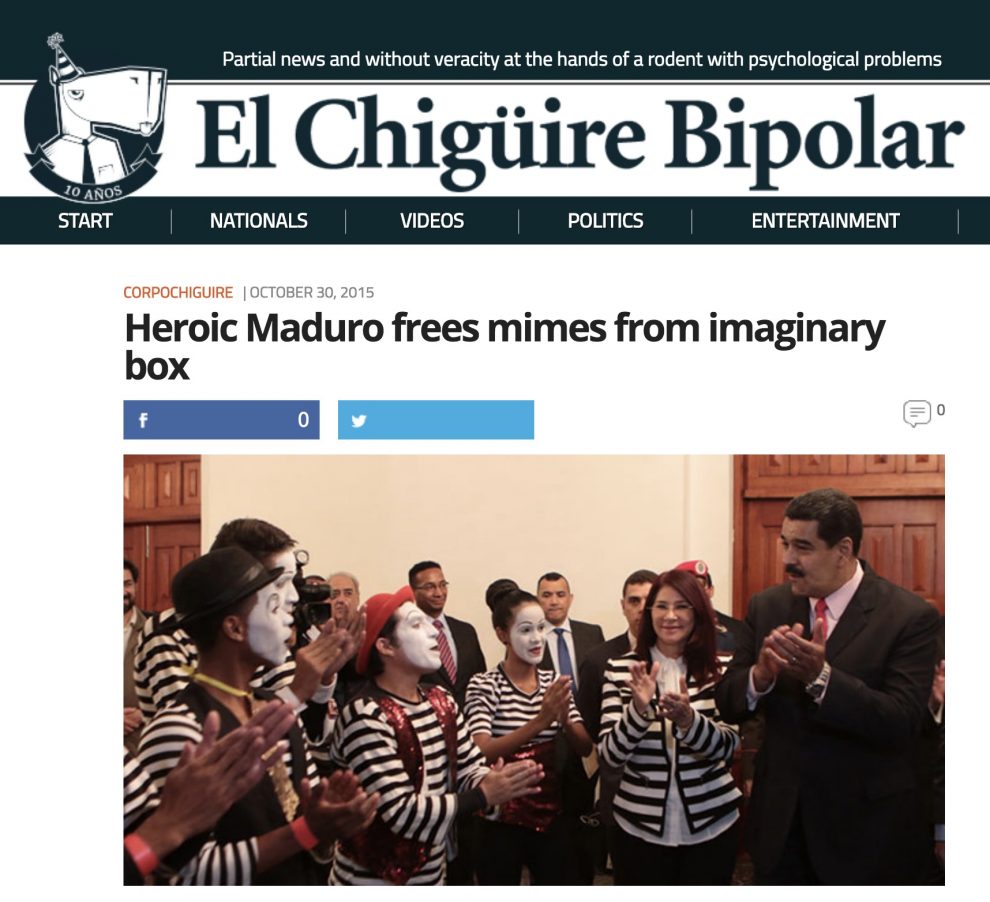
Editor’s note: This is the second in a series of stories on how online satirical outlets around the world develop their shows and sites under difficult national conditions and repressive, authoritarian governments.
Effective satire can shake power and can speak truth to power, and in some countries, humor is one of the remaining avenues through which those things are possible, María Teresa Ronderos, director of the Program on Independent Journalism at Open Society Foundations, pointed out at an ISOJ 2018 panel she convened on these issues. Satire and humor, Ronderos said, offer “the last resort in many ways,” and can become incredibly high stakes when the work ends up offending those in power. (Disclosure: Nieman Lab has received OSF support.)
This series highlights several of the organizations that gathered at ISOJ, including material from their presentations and from additional follow-up interviews with presenters and with additional writers and producers of the efforts profiled. The text that follows is in the humorists’ own words.
Check in each day this week to see how the Middle East’s Al-Hudood, Zimbabwe’s Magamba TV, Venezuela’s El Chigüire Bipolar, Bosnia and Herzegovina’s Satro Info, and Kenya’s The XYZ Show develop new audiences, how they’re thinking about the humorist gender gap among in their countries, and how they work journalistically, in many ways achieving the types of impact often associated with journalism. Up today: Venezuela’s El Chigüire Bipolar, which turned ten years old this year, as president Nicolás Maduro was controversially re-elected to a second term as president of a country facing economic free fall, political unrest, and a mass exodus of its citizens.
I’m Juan Andrés Ravell, cofounder and editor of El Chigüire Bipolar — Chigüire is a capybara, bipolar means…bipolar — a satirical news site from Venezuela. We’re ten years old at the moment, and this is what we do: We’re a satirical website that gives a comic twist on the real news that happens in Venezuela. We also produce web shows and OTT shows that also satirize reality.
Full-time at El Chigüire, we have five people; add in part-time and that can amount to 10. The full company is Plop Media (which owns the site, and which I’m also a partner of) and it has 25 employees in Caracas, plus a smaller team in Miami.
We have around 15,000 unique visitors daily during weekdays. Facebook was the main traffic source for us until they did the recent changes in the algorithm. Now the main referral driver is Twitter, followed by Instagram, which is growing rapidly thanks to Instagram Stories. Email and organic are also very important to us; they amount to about 30 percent of our traffic sources.
Most of our revenue comes from other sources outside El Chigüire. We sometimes use the same team or structure to produce and write for TV, for OTT, or other political satire web series. Those shows include: Isla Presidencial (Presidential Island, now cancelled, but we did that with a partnership with the YouTube channel NuevOn), Pero Tenemos Patria, El Reporte Semanal con el Profesor Briceño (we write and produce this for an OTT called Vivoplay) or a series we did for Univision Digital for the U.S. election in 2016, Heads Of Space. For El Reporte Semanal, we actually added a journalist to the team. He’s finding stories our team is finding funny ways to express. That’s maybe a first step — and then we can think about the possibility of collaborating with other mediums.
We are currently developing an OTT documentary series on how you can vote your way out of freedom. We have some experience on that in Venezuela. This is a political satire project for U.S–Hispanic audiences, and a new animated series tackling corruption in Latin America.
I’m going to walk you through how we have survived these ten years.
1. The first rule to surviving in the full-on dictatorship that we have here is to actually be funny. If you’re not really funny, this is not going to work.

[This and other English-language screenshots are of Google Translate versions of their stories. —Ed.]
We’ve also tried a kind of failed show, which is a broadcast-style TV show. We also have a show called Pero Tenemos Patria, a web show which can pull in over a million viewers per episode.
2. Timing. The other thing that is very important for us is to be on top of the news, to be on top of current events. Timing is very important. On social media, we’ve gained over 2 million followers on Twitter, and that’s because of this. Timing is very important.
For example, we took the news that the Psuv municipal council had appointed a new authority in Maturín after an arrest warrant was issued against the opposition-elected mayor, and we wrote a story: “Attila the Hun takes control over Maturín.”
So we also inform our audience of the news. Because when you read this Attila the Hun article, we actually link back to the news site Efecto Cocuyo, which did the original reporting, so you have an informed place to click into.
3. Owe nothing to anyone. One thing that’s important, and also very much confuses the government, is that we also make fun of the opposition, and they…like that.

4. Praise and confuse. It’s important to do weird stuff. It’s important for us to praise the government, to get into their language, and then attack from their point of view using their language.

5. Make fun of ourselves. We make fun of the extremes in our own party. We make fun of Venezuelans.
We’re satirizing what’s happening, and people understand that we’re not making fun of the suffering, but making fun of the powerful, and by holding the powerful accountable, we’re at least driving things in the right direction. I wouldn’t say we give hope with humor. That’s a stretch. But at least we’re helping bridge a gap with the censorship that’s happening on TV and radio. All news in Venezuela is tightly controlled, so with our satire, I hope we’re helping.

6. It’s important to have a great team, and to let the team grow in the space we’ve created. For us, it’s important to find the best creatives in Venezuela, and let them grow in our ecosystem. They’re all comedians, so they maybe have to leave at 5 because they have a standup comedy set — we let them.